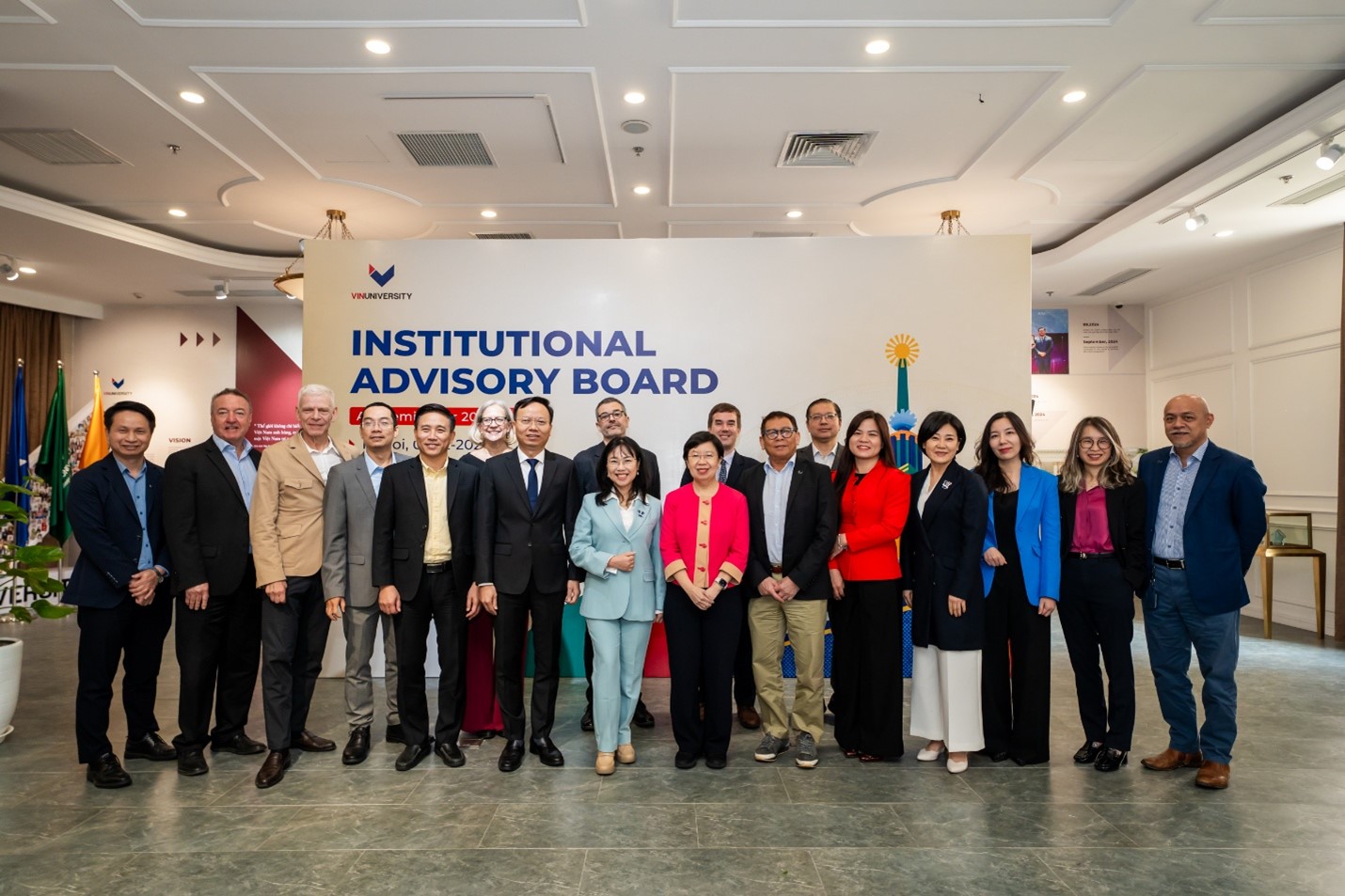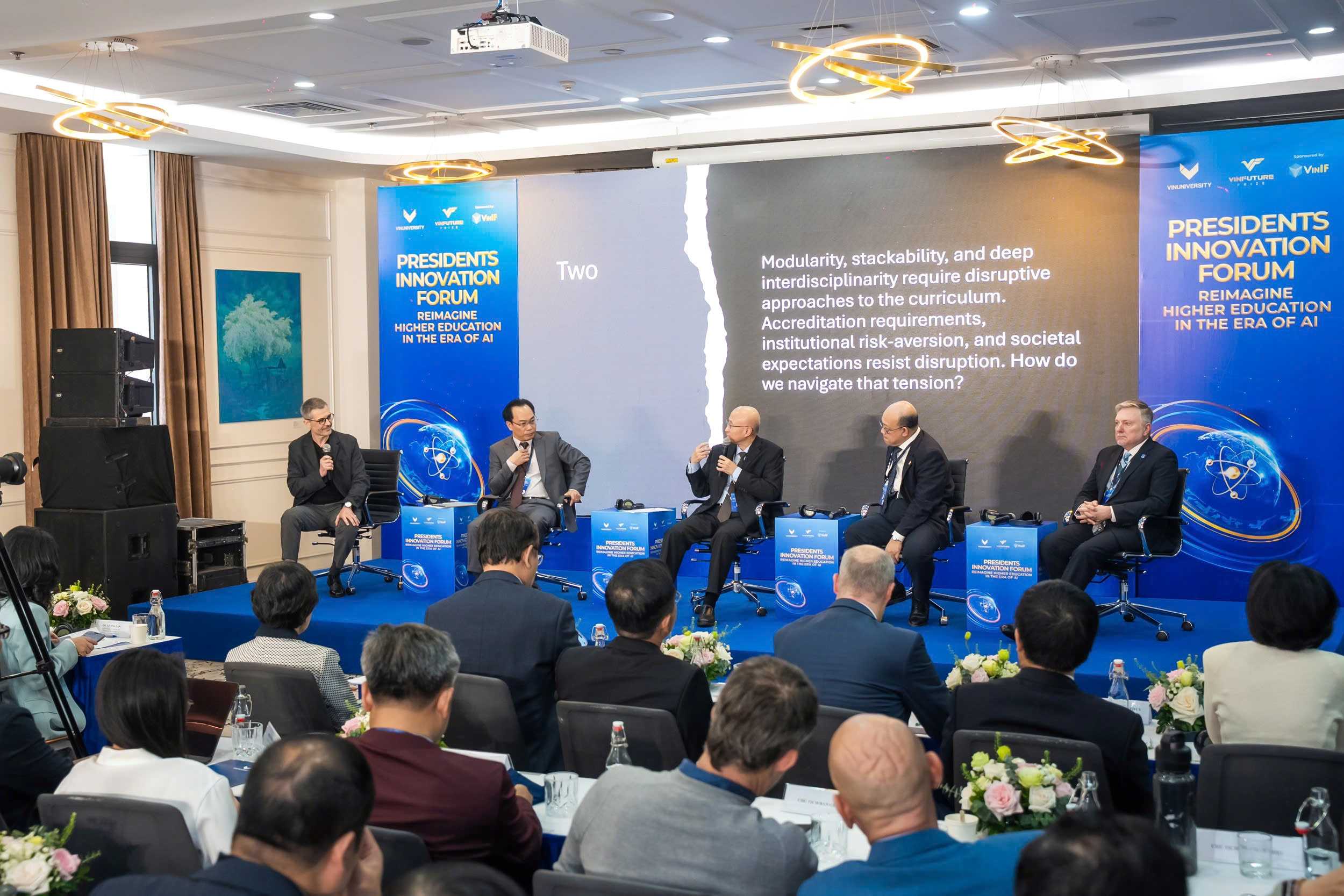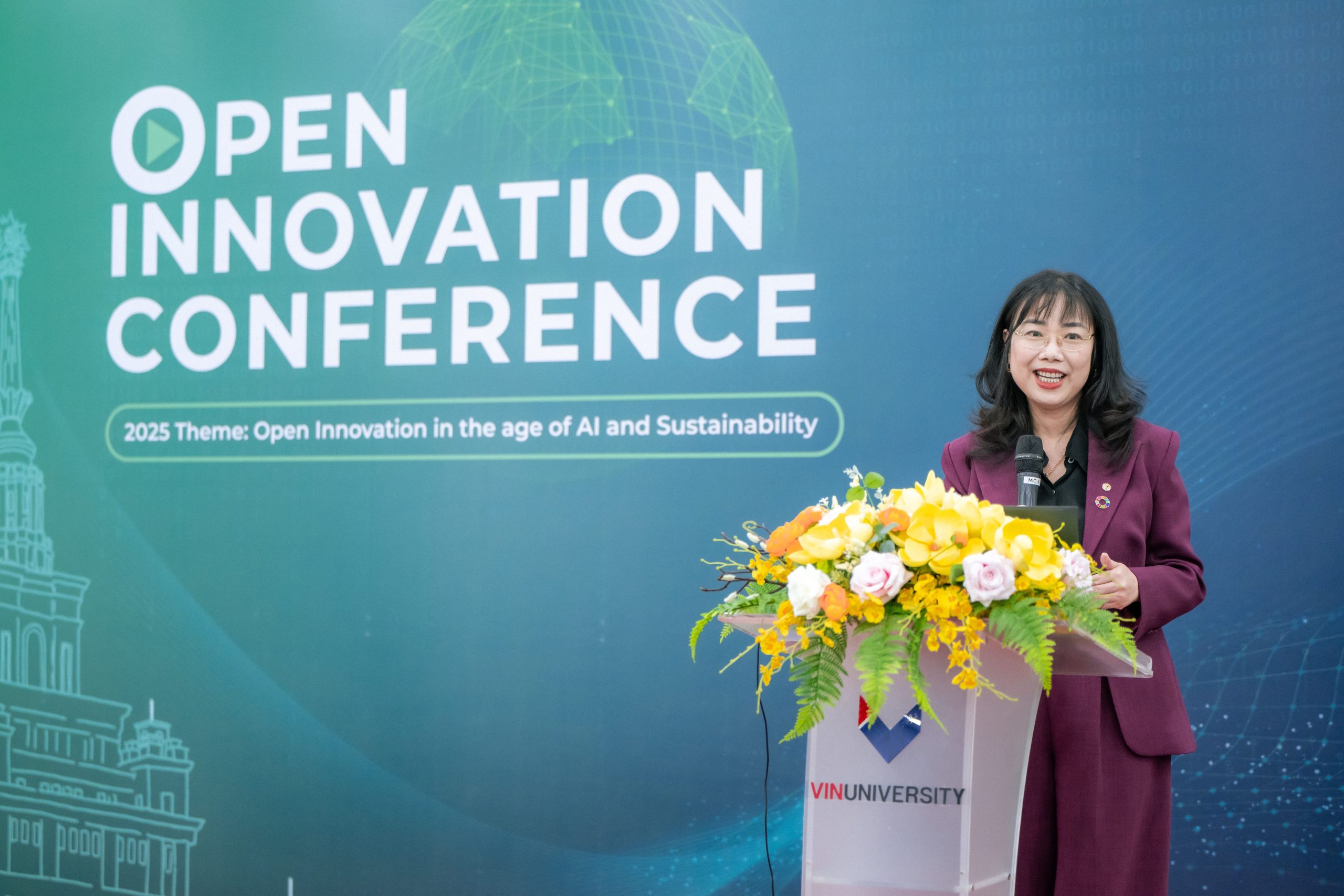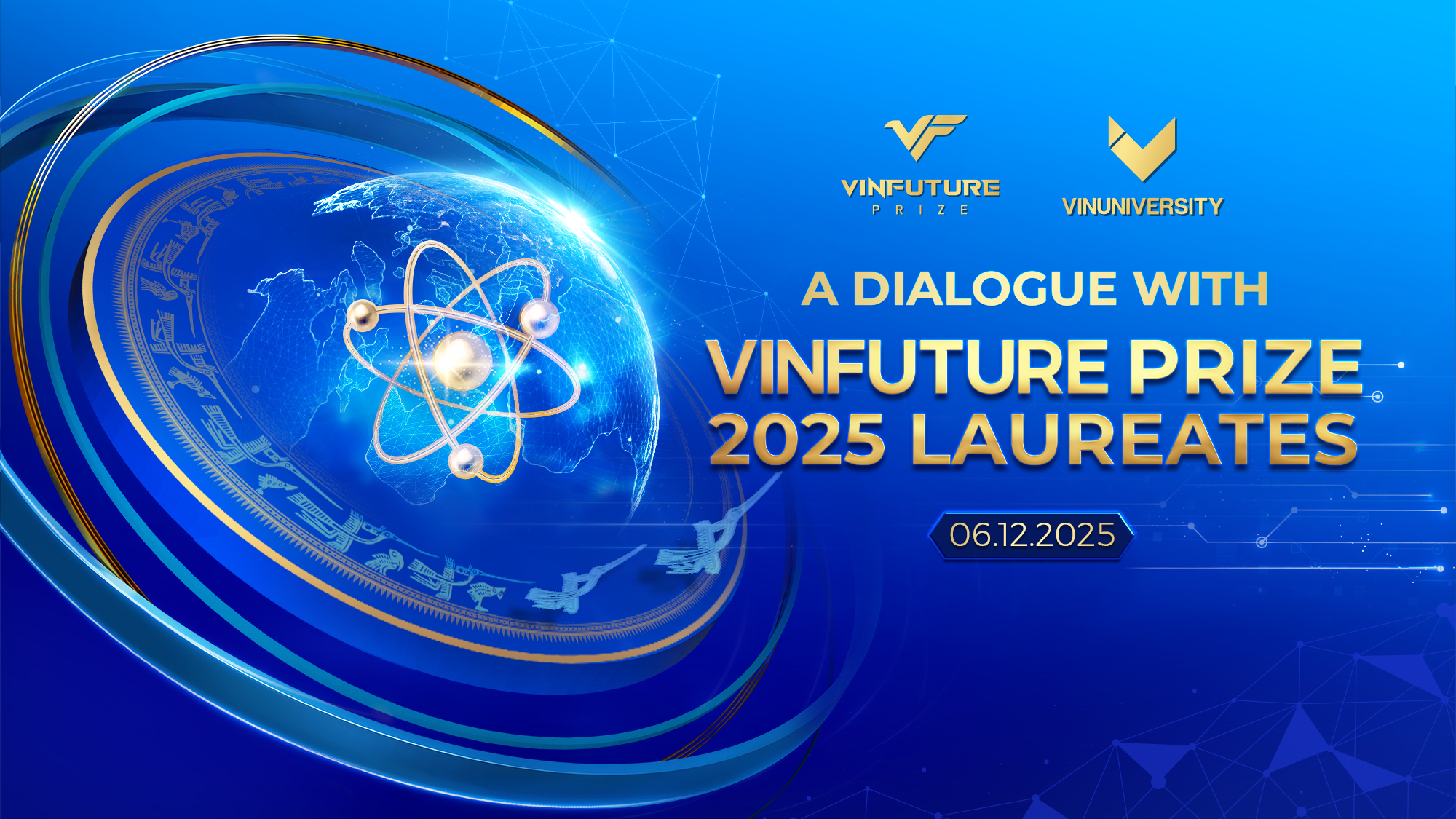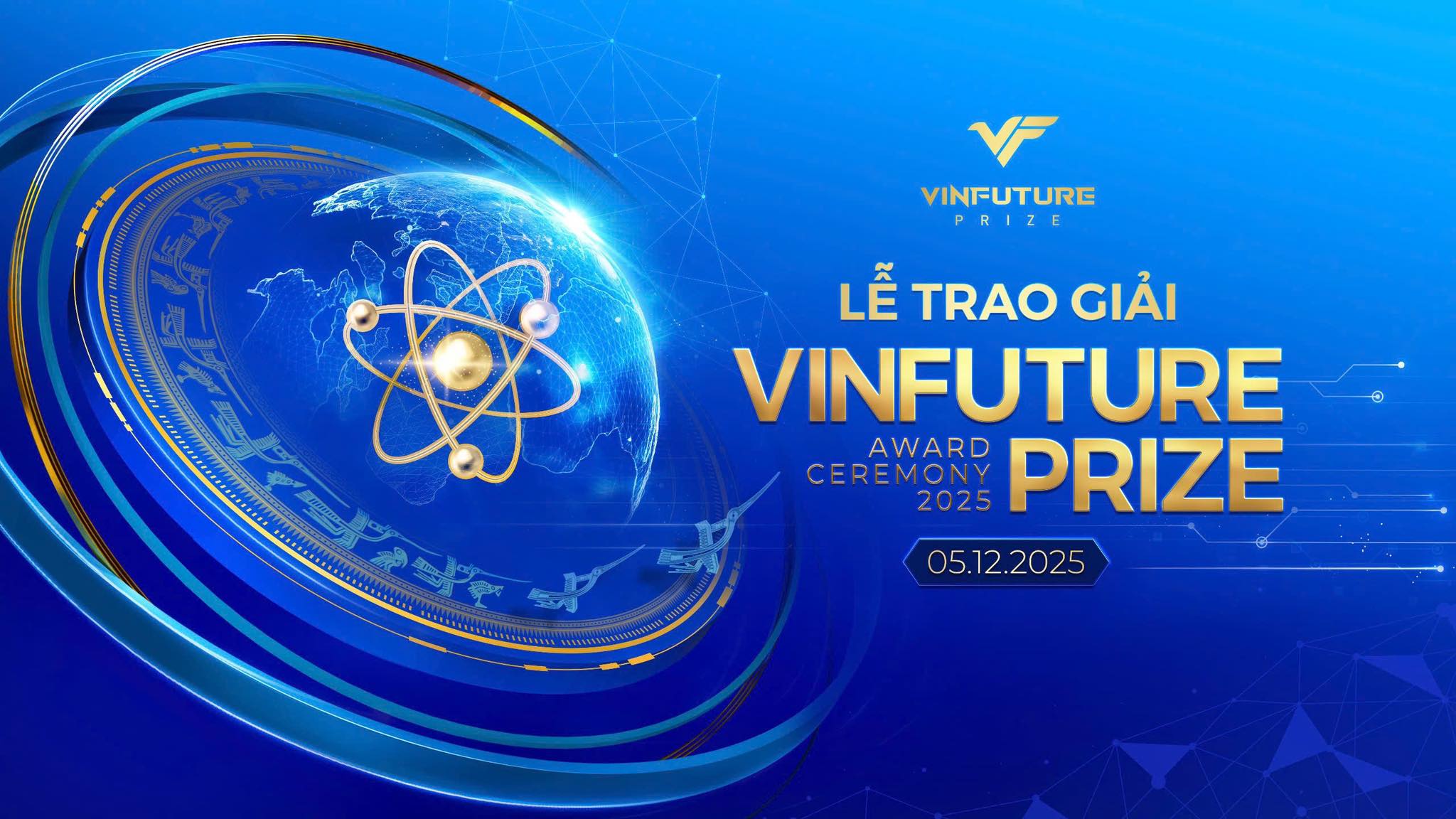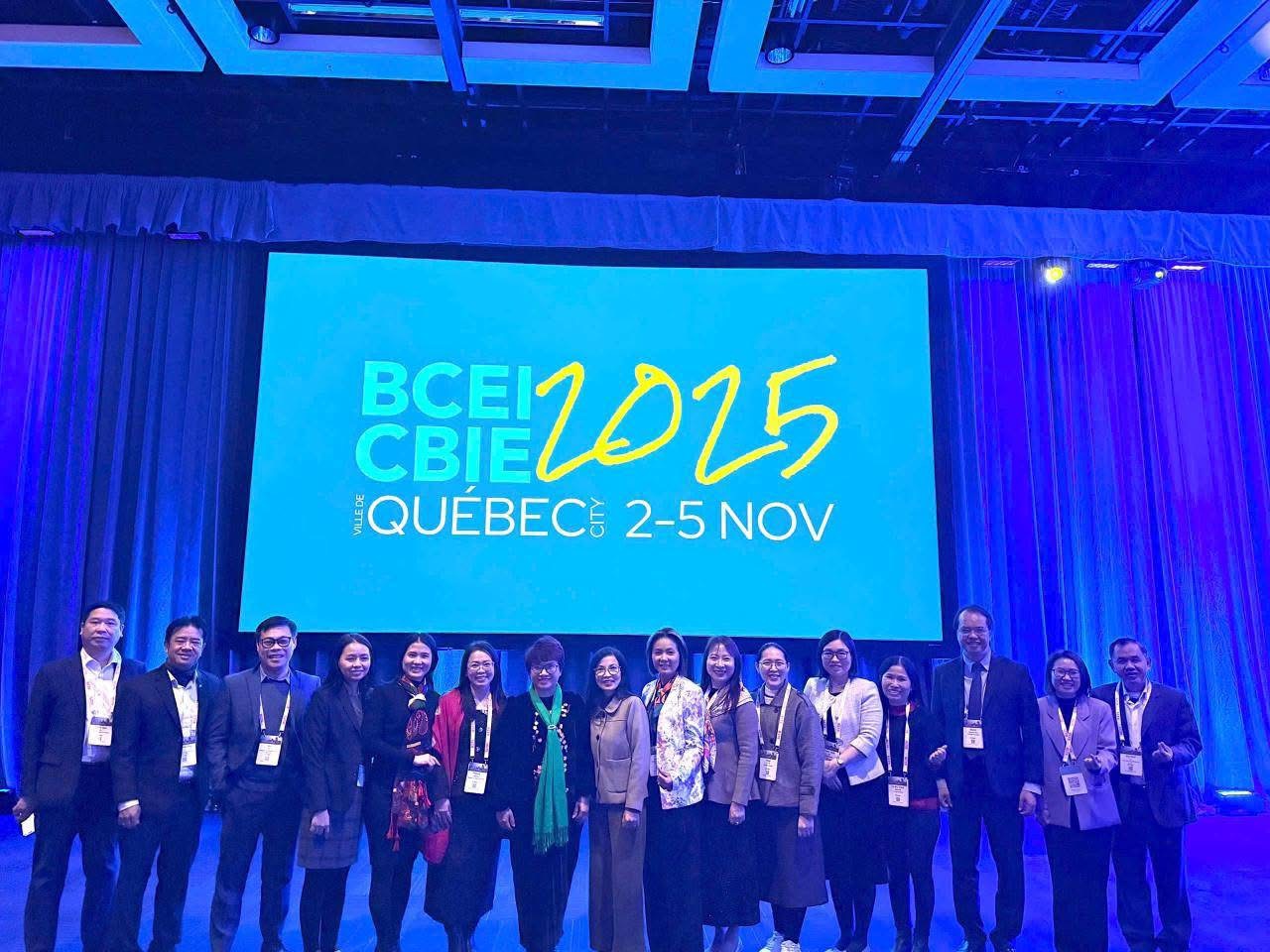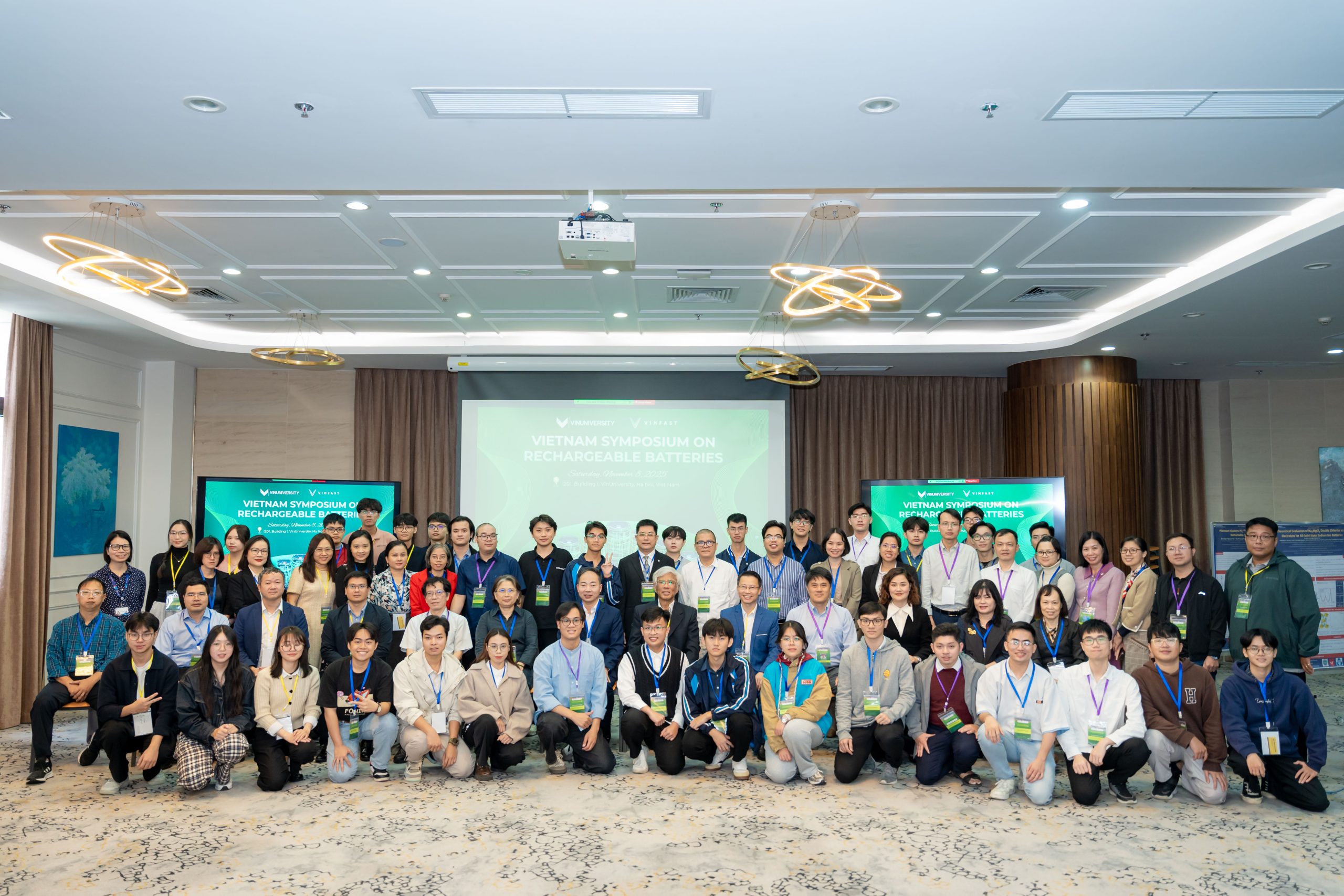Prof. Barbara Oakley – famous globally for her course on “Learning How to Learn” – recently came to VinUniversity to discuss effective learning methods with thousands of lecturers, teachers, andd high school students in Hanoi, Ha Nam, Bac Ninh, etc.
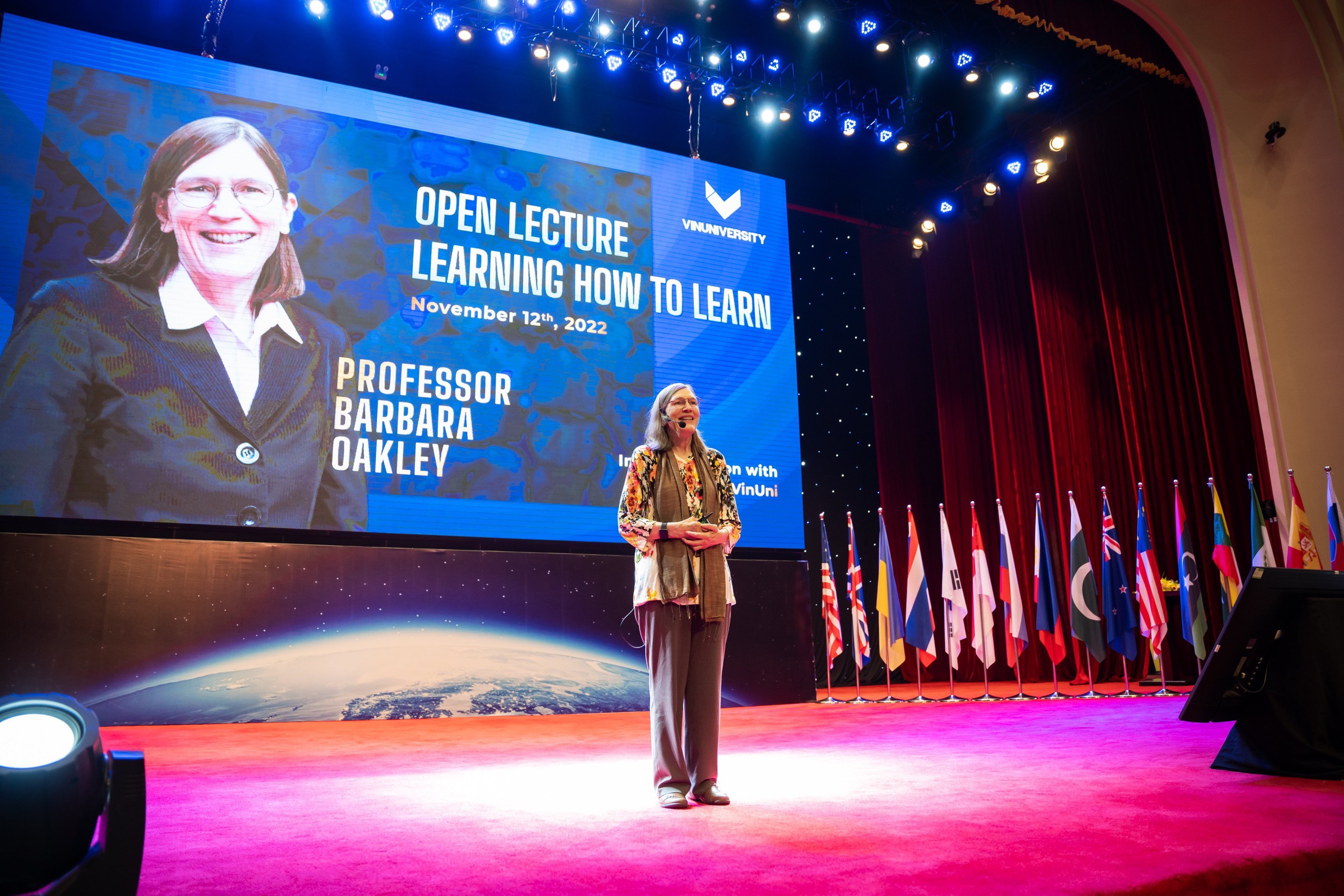
Self-adjust the mind to turn the subject one finds most challenging to one’s passion
Prof. Barbara Oakley (Oakland University, Michigan, US) revealed that she used to be the girl that hated Maths and Sciences. She even saw them as “poisons”.
“I loved animals, liked crafts, and hated numbers. I couldn’t understand all those buttons on TV at the time when remote controls hadn’t been invented. So if my siblings didn’t do the “engineering” for me, I wouldn’t watch TV”, described Prof. Barbara.
Hated Maths and Sciences, the young Barbara had to choose Russian as her major in university. Nevertheless, she soon realized that only following one passion would limit her options. More passion means more amazing opportunities. This could be done by learning once-hated subjects with a new learning method: mastering self-learning.
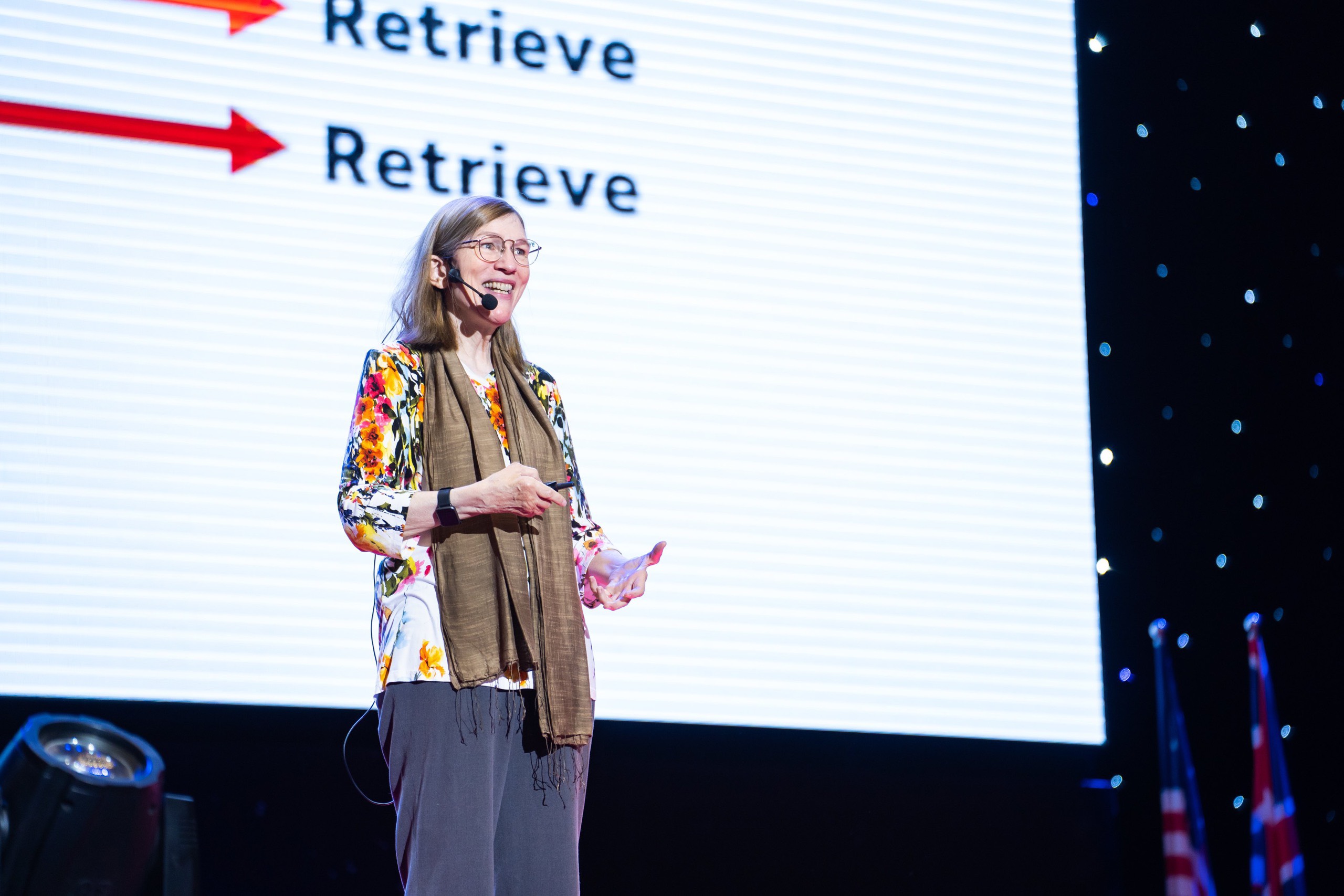
And change she did. She became an excellent engineering professor, as well as an expert in mathematical equations and complex science concepts. Things she used to hate as a child became her passion and later success.
Her journey of self-adjusting her mind gave her amazing insights and, now, she hopes to share this knowledge.
The focused and diffuse state in learning
From her own experience, Prof. Barbara Oakley believed that, once one turns learning into an active learning process, the learner would gradually develop interest.
Prof. Oakley pointed out concepts of “focused mode” and “diffuse mode” as the brain’s two learning mechanisms. The focused state occurs when one concentrates on a certain task, such as solving a mathematical problem, while the diffuse state occurs when one’s mind wanders and relaxes. In order to learn effectively, everyone needs to understand how to appropriately switch between these two modes.
Prof. Oakley shared that the diffuse state is not only a state of relaxation, but also of creativity. Thus, it is not only counter effective to study “too hard”, but it also reduces creativity and thinking.
“Ride a bike, exercise, or do something completely different from what you have been studying. However, you shouldn’t relax by playing games or chatting online. This is because doing this would shift you from one focused mode to another”, noted Prof. Oakley.
Discussing the fact that Vietnamese students are forced to take many extra classes, Prof. Oakley found this ineffective. No matter how much a child is forced to study, forced learning would cause the child to lose creativity and thinking skills.
According to Prof. Barbara, parents should support their child’s learning in a light and scientific way, arranging appropriate times for relaxation in between intense study periods. They absolutely should not give their child a strong impression of parents’ faces of annoyance when nagging their child to study.
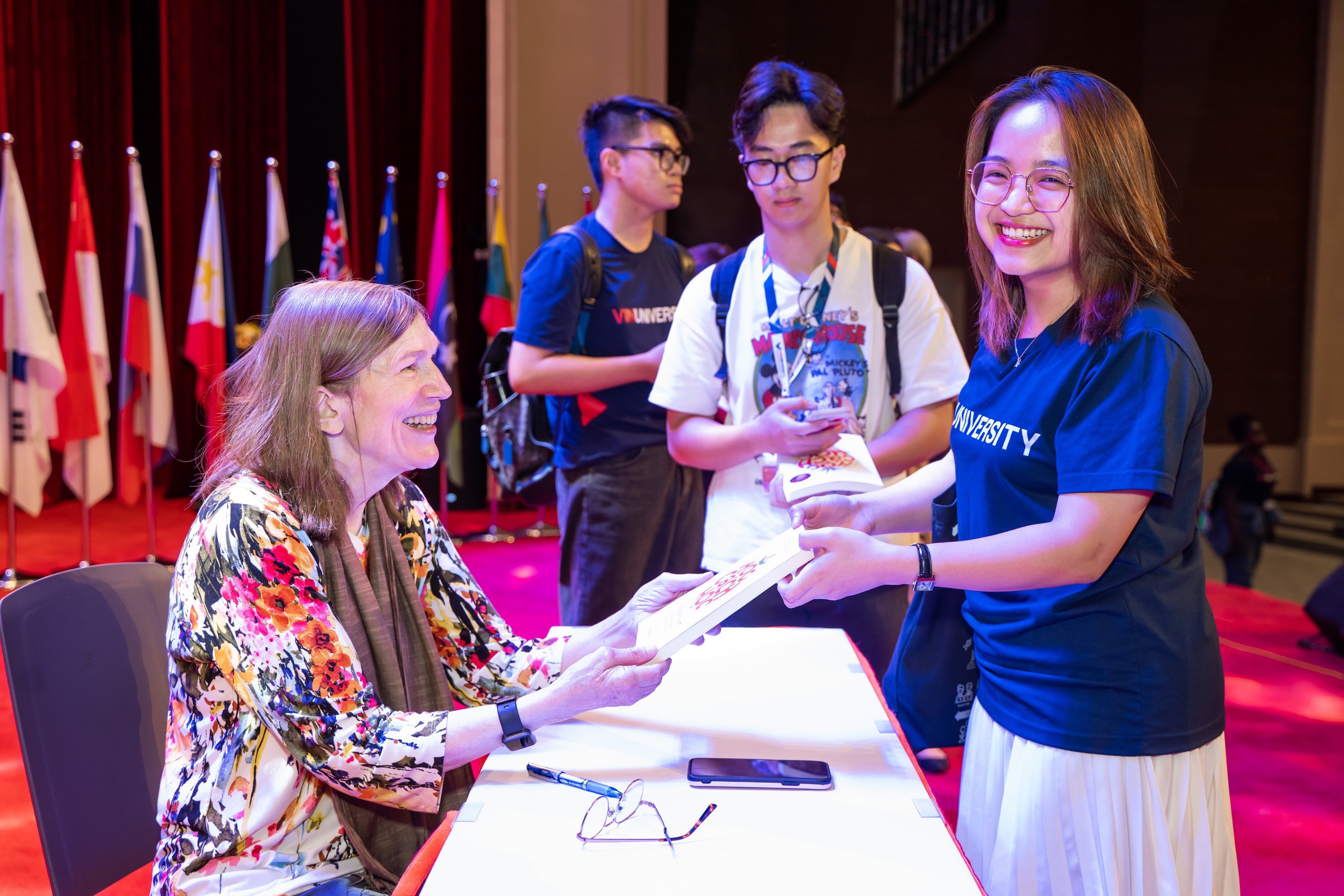
This sharing from the world-renowned professor incited great interest and discussion from students. Some admitted to having been forced to study. Others were hesitant, as they believed that some subjects should be learned intensively to be effective, for example languages.
Prof. Barbara shared the Pomodoro timing method to switch between the focused and diffuse mode. Accordingly, learners would set a timer of 25 minutes. During this time, learners should turn off everything that might make them distracted. They would then get a 5-minute break. This process is then repeated several times, with 30-minute breaks added in-between. She stressed that this is the time for your brain to unleash its creativity.
Spreading “how to learn” publicly like VinUniversity
Besides methods on how to learn, Prof. Barbara gave her opinion on the various teaching methods and how to promote students’ self-learning capabilities. For her, only younger students need 100% offline classes. High school students can reduce their time at school and combine offline learning with virtual learning.
According to the Professor, many countries give teachers very low pay, resulting in insufficient supply and unequal quality of teachers. If a country can focus its resources in giving higher salaries to a team of distinguished teachers to teach online and stream nationally, there would be many advantages. This would not only be a valuable common resource for teachers, but also allow students from everywhere access high-quality lectures, thereby enhancing reach.
Speaking on education’s reach, Dr. Le Mai Lan, President of VinUniversity’s University Council, shared that VinUniversity hopes to become a core learning institution and a gateway for knowledge between Vietnam and the world, spreading knowledge to the Vietnamese academic community.
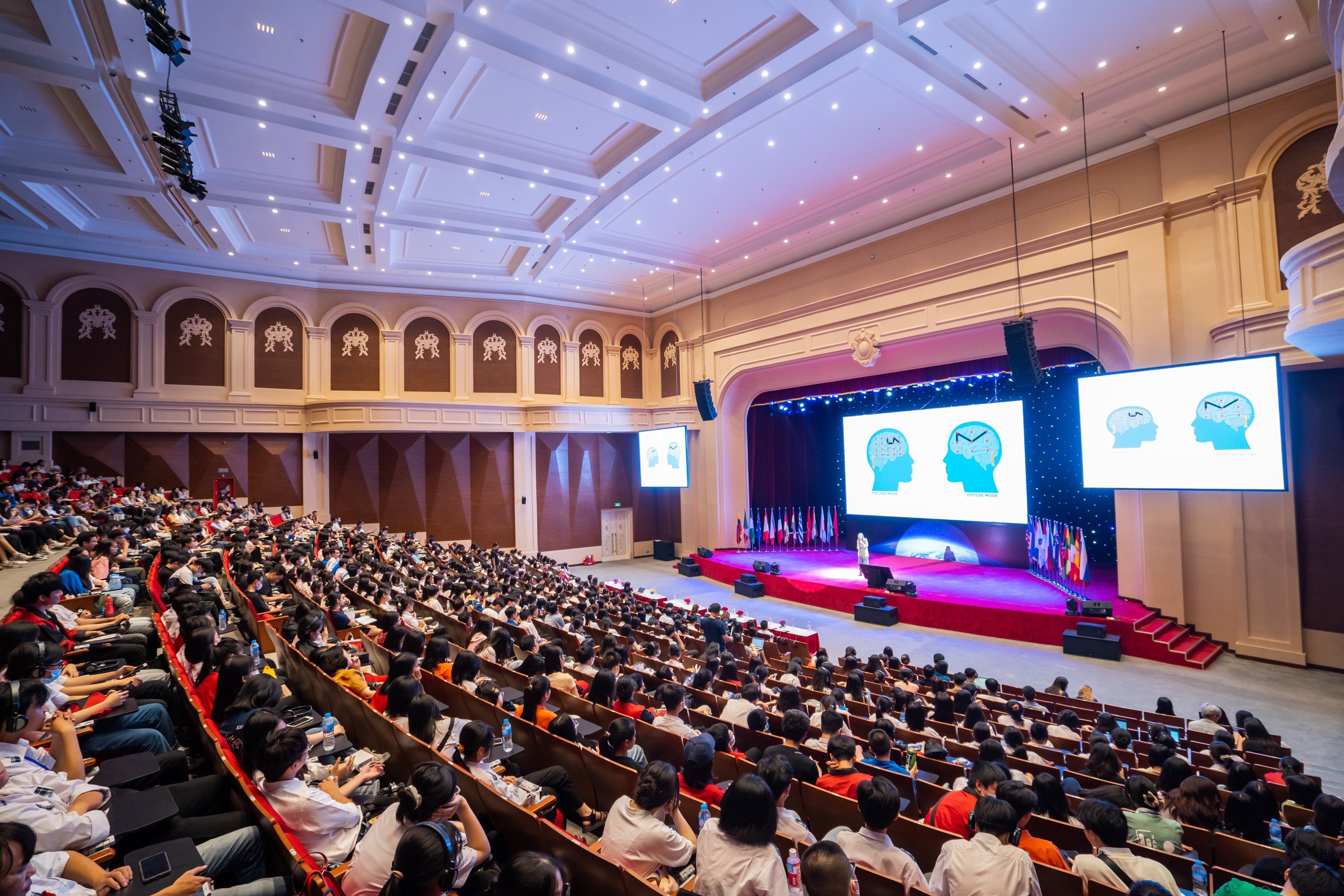
Therefore, Prof. Barbara Oakley’s sharing was organized as a public lecture, open for free to millions of students from Hanoi and neighboring provinces to attend. With the support of the Department of Continuing Education, Ministry of Education & Training, the lecture was also broadcasted online to approximately 600 continuing education centers nationally. This was a testament to VinUniversity’s value on spreading knowledge to the community.
Students and teachers sharing about the one thing that they will apply immediately as a result of this talk.
Previously, on 11/11, VinUniversity also invited Prof. David Reibstein, a leading expert in Marketing from Wharton Business School, University of Pennsylvania, to speak at the “Place Marketing and Destination Branding toward Sustainability” seminar.
___________
Many years ago, a video of Prof. Barbara Oakley – filmed with the support of her husband in their basement – on “how to learn” caught the attention of millions. This opened up a new path for her – becoming a renowned professor on how to learn and develop the mind scientifically at many distinguished universities.
She was the winner of American Society of Engineering Education Chester F. Carlson Award and the National Science Foundation New Century Scholar.


